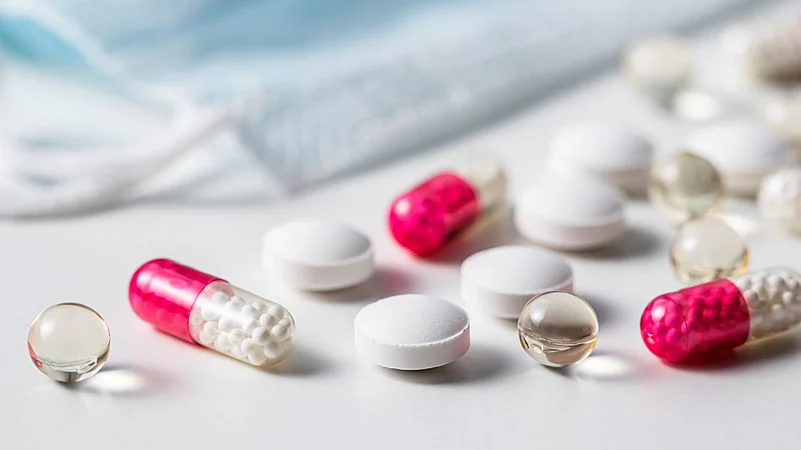12 May , 2025 By : Debdeep Gupta

Domestic pharmaceutical and healthcare stocks eked out minor gains, snapping their early losses on Monday, May 12 as U.S. President Donald Trump announced that prices of prescription drug and pharmaceutical products, making them among the lowest globally. However, shares of Asia-based drugmakers extended losses, falling up to seven percent on earnings growth concerns.
On social media platform Truth Social, Trump wrote, “For many years, the world has wondered why prescription drugs and pharmaceuticals in the United States were so much higher in price than they were in any other nation. Sometimes being five to ten times more expensive than the same drug, manufactured in the exact same laboratory or plant, by the same company.”
He criticised pharmaceutical companies for blaming the disparity on research and development costs, arguing that American consumers have been unfairly burdened for years.
“It was always difficult to explain and very embarrassing,” Trump said. “The pharmaceutical companies would say, for years, that it was research and development costs, all of which were borne by the ‘suckers’ of America, alone.”
After slumping two percent in the early session, the Nifty Pharma index erased its losses. At 10.45 am, the index was mildly higher, up 0.3 percent to quote 21,138.90. Constituents such as Mankind Pharma, Dr Reddy's and Granules India were leading the gains, rising up to four percent.
Across Asia, South Korean and Japanese drugmakers' shares plummeted. Japanese pharmaceutical stocks tumbled in early Tokyo trade, with Chugai Pharmaceutical sliding as much as 7.2 percent, its steepest drop in a month, while Daiichi Sankyo and Takeda Pharmaceutical fell around 5 percent each. In South Korea, shares of SK Biopharmaceuticals, Celltrion, and Samsung Biologics were down more than 3 percent.
In a conversation with Moneycontrol, Vinit Gala, Founder, Xylem PMS explained that President Trump calling for such a large cut is largely rhetoric, "it is not something which can be applicable."
The reason behind sky-high pharmaceutical costs in America is the cost of compliances. "Most of the U.S. FDA compliances, most of the drug approval, the timeline of drug approval, and the cost to maintain a U.S. FDA-approved facility is a lot higher. So, irrespective of the drug cost, the end cost is more compared to a developing economy like India," Gala added.
Further, Indian generic pharmaceutical players are likely to be more insulted. On the other hand, Korean pharma players deal in patented biologics. "Generics actually help a lot in the U.S. to get the prices down. Once a patented molecule is off-patent, the pricing does come down by around 80 percent to 90 percent. However, if the pricing of generics are altered, there could be wide-spread shortages," he noted.
This move is not the first by President Trump regarding pharmaceuticals. On May 5, Trump signed two executive orders related to the pharmaceutical industry: the first order promotes domestic drug production by easing regulations and prioritising U.S. supply chains and the second, citing biosecurity risks, limits funding for research that could enhance virus pathogenicity.
Following the update, Nuvama Institutional Equities said, "The policy initiatives, if implemented fully, may lead to increased compliance/operational cost for foreign manufacturers, including
those in India. We expect generic pharma to continue to underperform due to uncertainty."
The order aims to expedite the process of kickstarting manufacturing of APIs, KSMs and associated raw materials in the US. The order highlights the US government's concern and national security risks arising due to extensive delay in building domestic pharmaceutical manufacturing capacity, explained the brokerage.
0 Comment